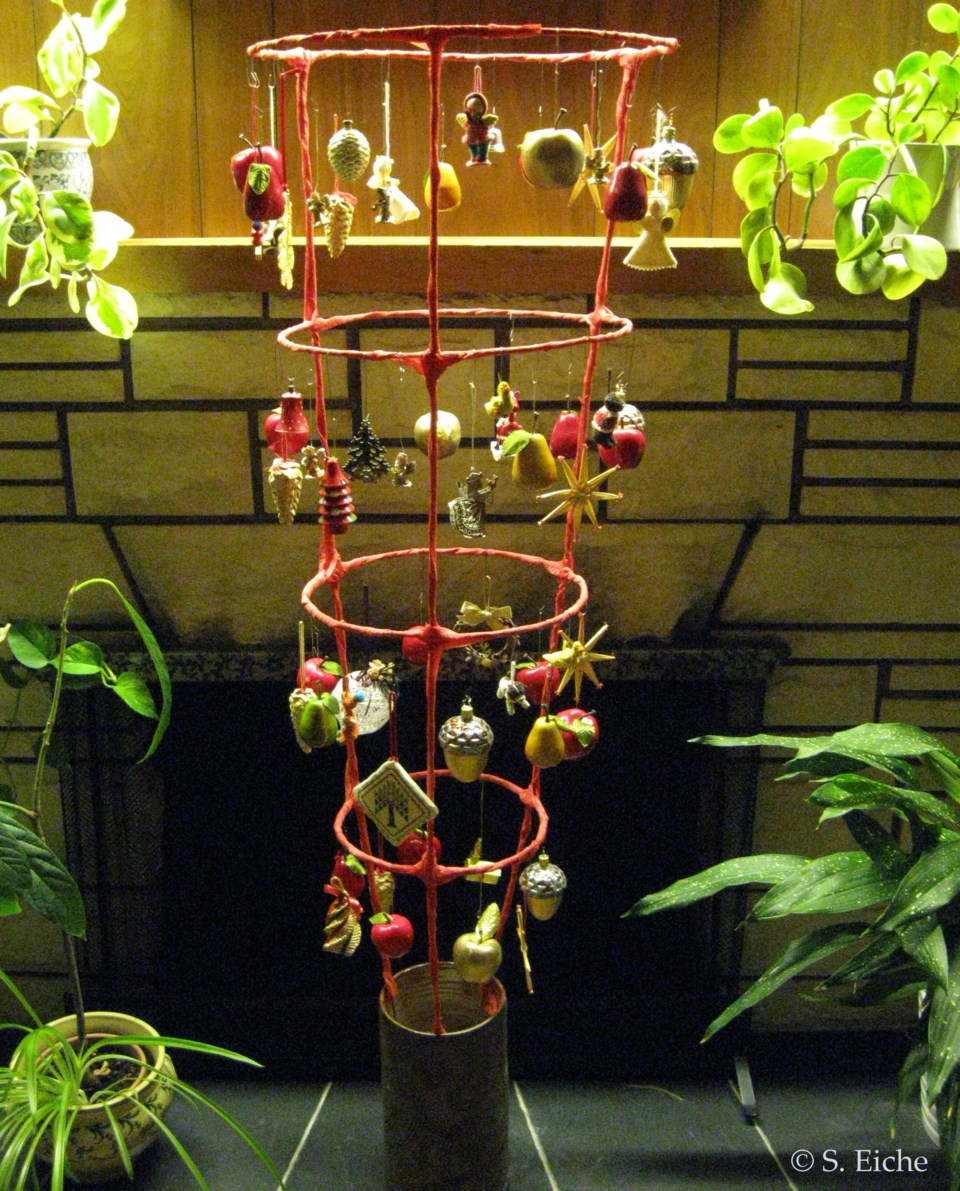‘Twas three months before Christmas, and all through the store, there popped up fake Santas, and fake trees galore (with apologies to Clement Clarke Moore).
I’ve come to think that the frenzied shopping for Hallowe’en treats and costumes merely serves to get the consumer into the mood for what lies ahead, the really big buying spree of the year — holiday shopping, sometimes called Christmas shopping. It begins early, little teasers coming out even before the Hallowe’en merchandise is cleared away. By the time American Thanksgiving arrives, with its Black Friday and Cyber Monday in tow, the bell has rung, the gates swung open, and the race is on!
As I listen to the ads on the radio, I’ve yet to hear any traditional Christmas sounds, such as carols (even parodied), or bells jingling to a familiar tune ("Jingle Bells" is said to have been composed in the 1850s by James Lord Pierpont in Medford, Massachusetts). Christmas sounds have been replaced by the sounds of online shoppers checking out and a voice insisting on how easy and fast it is.
My sense is that although nobody likes feeling the pressure of holiday shopping, opinions are divided regarding what gift-giving is all about. While I’ve found several articles providing ideas for Christmas gifts that are either DIY or absolutely free, there seem to be even more articles offering suggestions for gifts to purchase. I confess these gifts usually leave me bewildered, even horrified, with prices that are sky-high for items whose main purpose seems to be to drain the money from your wallet. It was gratifying to learn that my reaction is neither new nor isolated — 110 years ago, in 1912, a band of women in New York, led by the actress Eleanor Robson Belmont and the heiress Anne Morgan, founded the Society for the Prevention of Useless Gifts (SPUG), whose membership had grown to 6,000 before it lost momentum at the outbreak of the First World War. Maybe it’s time to revitalize SPUG?
Even if you’ve set aside a little money to buy Christmas presents, it doesn’t mean you have to succumb to the forces of commercialism. Why not visit a Christmas market and help support a local craftsperson or two? Or explore thrift shops and see if there are any useful items that catch your eye. You’d be spending less money than you would in a regular store. Furthermore, you’d be respecting the three R’s of sustainability – reduce, reuse and recycle. And let’s not forget charity donations made in the name of a friend or family member. But do your research — you want to make sure most, if not all, of your money goes towards supporting the purpose of the charity, rather than something else.
When there are small children in the family, it can be hard to ignore their wishes, which unfortunately are usually influenced by what the media feeds them. But a survey in the UK produced some surprising statistics. While 62 per cent of the children questioned said that getting gifts was what they were most excited about, 55 per cent between the ages of six and 12 indicated they didn’t mind if a gift was second-hand. Rated highest as the best thing about Christmas by 59 per cent was time off from school. For 50 per cent it was Christmas dinner, and 48 per cent said they most looked forward to playing games with family and friends.
Still, just having the possibility to make choices about celebrating and gift-giving is a gift in itself. Take a moment to think about the Ukrainians and what their Christmas will be like this year.
Sabine Eiche is a local writer and art historian with a PhD from Princeton University. She is passionately involved in preserving the environment and protecting nature. Her columns deal with a broad range of topics and often include the history (etymology) of words in order to shed extra light on the subject.



